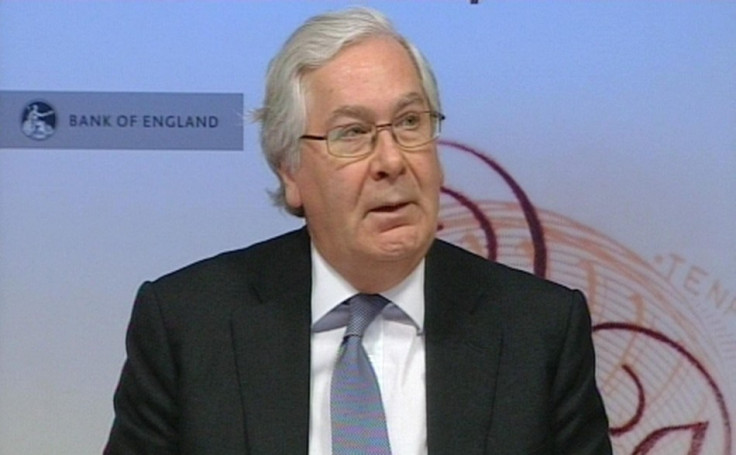Bank of England Minutes Reveal End May Be Near for QE

Minutes from January's meeting of the Bank of England Monetary Policy Committee reveal a shifting attitude among the UK's central bankers away from their increasingly ineffective vast quantitative easing programme and towards a credit easing scheme designed to free up lending among cautious banks.
Eight of the nine members voted for no more asset purchases under the QE programme, which has scooped up £375bn of gilts from the markets in an attempt to improve liquidity. Only one felt there was a strong case for buying more gilts.
Since June the BoE has pursued its Treasury-backed Funding for Lending Scheme (FLS), which offers banks cheap loans in relation to the value of their lending to the real economy of smaller firms and individuals. The BoE argues this should incentivise the loosening of credit availability, in turn stimulating economic growth.
"The Committee discussed how further monetary stimulus could be delivered, should it be warranted, and the effectiveness of additional asset purchases," said the BoE MPC minutes from the January meeting in which members also voted to hold the base rate at its record-low of 0.5 percent.
"While it was too soon to assess the full impact of the FLS in supporting lending and wider economic activity, the early signs within the banking sector were encouraging.
"There was also considerable further scope for asset purchases to lower long-term yields on government and corporate debt and support other asset prices.
"But there remained uncertainty about their impact on nominal demand, and they might prove less effective in boosting real output when resources needed to be shifted between sectors and while the banking system was constrained."
The minutes also reference the BoE's recent Credit Conditions Survey, which suggested banks were ready to free up a significant amount of lending in the first quarter of 2013 with the help of FLS.
Early figures from the BoE also show that from June to September £500m of bank lending was sparked by FLS.
---
Follow @shanecroucher
© Copyright IBTimes 2024. All rights reserved.























